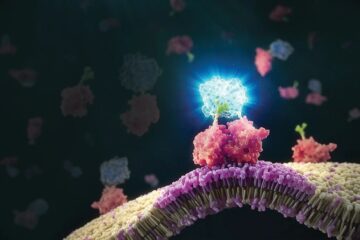From Nature:
 Although chimeric antigen receptor (CAR)-T therapy — where a patient’s T cells are engineered to fight cancer — works well against blood cancers in young people, that success drops dramatically for older patients. The impact of ageing on an older patient’s T cells, so-called cell fitness, could be the problem.1 “By measuring key markers of cell health and metabolic state it should be possible to determine whether CAR-T cells are developing correctly,” says James Cali, director of research for the assay design department at Promega, a biotechnology company in Madison, Wisconsin. “By providing assays for those markers, we hope to help scientists understand the fitness of CAR-T cells for their intended therapeutic purpose.”
Although chimeric antigen receptor (CAR)-T therapy — where a patient’s T cells are engineered to fight cancer — works well against blood cancers in young people, that success drops dramatically for older patients. The impact of ageing on an older patient’s T cells, so-called cell fitness, could be the problem.1 “By measuring key markers of cell health and metabolic state it should be possible to determine whether CAR-T cells are developing correctly,” says James Cali, director of research for the assay design department at Promega, a biotechnology company in Madison, Wisconsin. “By providing assays for those markers, we hope to help scientists understand the fitness of CAR-T cells for their intended therapeutic purpose.”
For CAR-T cells and other applications, scientists would like to track the health of cells in real time. Most cell health assays are endpoint assays, often including a reagent that kills the cells. As a result, these assays provide just one reading, and tracking the time course of changes in cell health requires multiple experiments — say, one at 30 minutes after a treatment, another at 60 minutes, and so on. With a kinetic assay, cells stay alive, and scientists can continuously monitor their health over a single experiment, saving time and resources.
More here.
